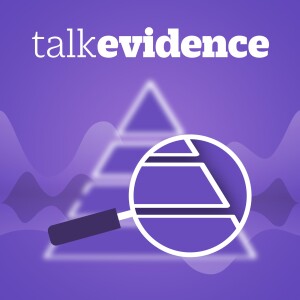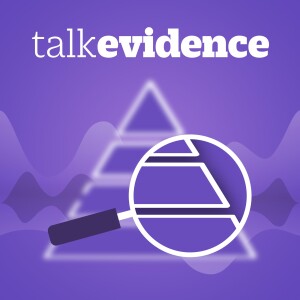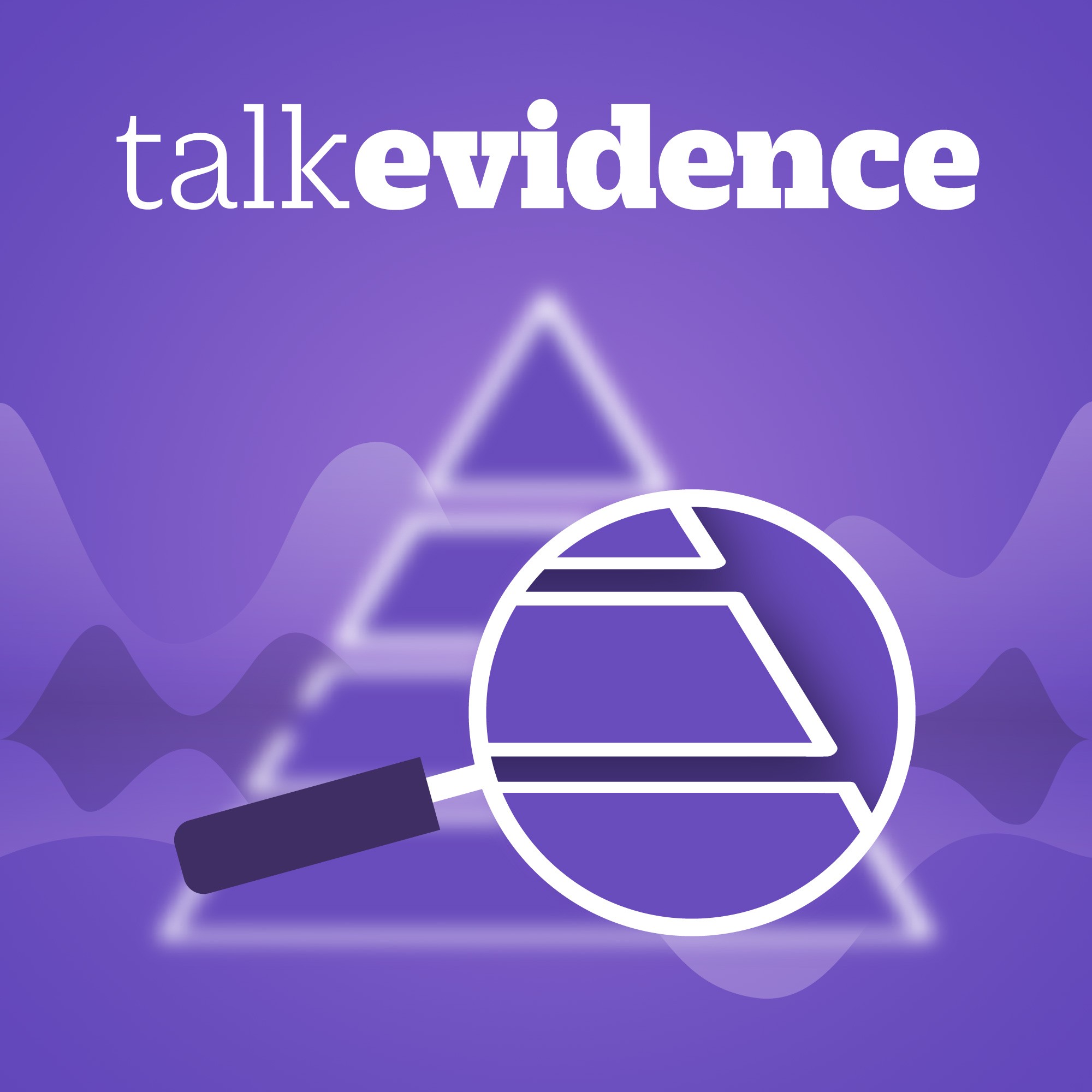Episodes

Tuesday Jul 01, 2025
The power and the pitfalls of early diagnosis
Tuesday Jul 01, 2025
Tuesday Jul 01, 2025
There is a growing market of new diagnostic tests being targeted directly to consumers, often before high-quality evidence about their effectiveness is available. This is causing issues in clinical practice as patients arrive at the NHS’s front door with results that have alarmed them.
The accuracy of these tests is unknown, developed in idealised populations then released to the general public, the positive predictive value of these tests plummet in the real world - but false positives require extensive further testing to rule out problems.
But advances in technology, with real potential, and commercial and societal incentives have aligned - these tests aren’t going to go away.
So how do we start grappling with the power and pitfalls of early diagnosis - define exactly how we should be evaluating and regulating this growing industry, and what changes will we need to put in place in our healthcare systems to make sure an early diagnosis is good diagnosis?
In this podcast;
Peter Donnelly, professor of public health medicine at the University of St Andrews
Bethany Jenkins, professor of health economics at the University of Leeds
Stuart Hogarth, researcher at the University of Cambridge
Andreas Halner, co-founder of Oxford Cancer Analytics
Alex Richter, director of clinical immunology services at the University of Birmingham
Carl Heneghan, director of the Centre for Evidence-Based Medicine at the University of Oxford.
This podcast was recorded at the Evidence Based Early Diagnosis Conference

Monday Jun 23, 2025
Monday Jun 23, 2025
Helen MacDonald and Juan Franco are back to examine the newest in evidence based medicine.
In this episode: gabapentinoids are medications routinely prescribed for treating epilepsy and nerve pain. But, they come with side effects; among them - dizziness, cognitive impairment, and a dent to motor coordination - as well as an increase in suicidal ideation for the patient. Seena Fazel is professor of forensic psychiatry at University of Oxford and joins Juan to discuss a new paper tracking the association of self-harm and gabapentinoids use in Sweden.
Meanwhile, GRADE is a fundamental tool for clinicians to assess the quality of evidence for medical interventions. But, the sheer number of recommendations in the GRADE series can be overwhelming. Gordon Guyatt is a distinguished professor of medicine at McMaster University in Canada, and an early figure in the rise of evidence based medicine. He joins Helen to reflect on the future of EBM, and how the new Core GRADE system can cut through the noise.
Reading list:
2. Why Core GRADE is needed: introduction to a new series in The BMJ

Thursday Apr 17, 2025
The evidence on physician associates, and the evidence against back pain injections
Thursday Apr 17, 2025
Thursday Apr 17, 2025
Helen MacDonald and Juan Franco are back, magnifying glasses in hand, to take a closer look at what’s happening in evidence based medicine.
In this episode: the NHS increasingly relies on physician associates to plug some of its leaks. But, what do academic studies show about the effectiveness of these newest healthcare team members? Trish Greenhalgh is professor of primary healthcare at the University of Oxford, and she tells us about her meta-study reviewing the evidence.
Meanwhile, chronic back pain can be debilitating. When it’s at its worst, patients are eager for treatments. But, what is the true effectiveness of spinal injections to alleviate pain? Jane Ballantyne is a retired professor of pain medicine. She discusses where interventions go wrong, and how new recommendations for pain management reflect the best evidence.
Finally, Helen and Juan face uncertainty. A new research methods and reporting paper published in the BMJ takes a critical look at clinical prediction models. What does the evidence tell clinicians about how to behave when outcomes can’t be exact?
Reading list:

Wednesday Mar 05, 2025
Anti-HIV injections vs. oral medication, and best uses for AI in healthcare
Wednesday Mar 05, 2025
Wednesday Mar 05, 2025
Helen Macdonald and Juan Franco are back, delving into some new evidence.
Studies showing that bi-annual injection that could prevent HIV transmission sound incredible, but will the implementation research find that the tried and tested pill regime is better? Jen Manne-Goehler, Assistant Professor of Medicine at Brigham and Women's Hospital, explains all about Lenicaprovir .
And while silicon valley tells us the future is AI, how can we trust the tools they produce? FUTURE-AI is an acronym and a potential answer, Karim Lekadir, director of the University of Barcelona’s Artificial intelligence in medicine lab, join us to explain what FUTURE-AI means, and why its principles are important in both the design and evaluation of machine learning.
Reading list:

Tuesday Feb 04, 2025
UTI dipstick tests, and the effects of staff turnover on patients
Tuesday Feb 04, 2025
Tuesday Feb 04, 2025
In this first episode of 2025, hosts Helen MacDonald and Juan Franco focus on hospitals - asking how useful UTI dipstick tests really are for acutely ill patients, and what are the effects of staff turnover on patient care in NHS hospitals?
01:11 The use of dipsticks for acutely ill UTI patients
07:48 Interview with UTI paper author
17:26 Turnover of doctors and nurses and the effects on patient care
18:41 Interview with staff turnover paper author
29:34 Helen and Juan’s thoughts on the staff turnover paper
Reading list:

Wednesday Jan 01, 2025
Talking Christmas evidence 2024
Wednesday Jan 01, 2025
Wednesday Jan 01, 2025
Reading list

Thursday Aug 08, 2024
Starting to measure sustainability, and changes in breast cancer screening
Thursday Aug 08, 2024
Thursday Aug 08, 2024
Measuring the carbon impact of healthcare interventions is essential if we're going to make the sector sustainable, however tracing all of the emmission from even a simple treatment can be tricky. Romi Haas, a research fellow at Monash Department of Clinical Epidemiology joins us to explain how it works, and how research could be more efficient.
New U.S. guideline on breast cancer screening have been extended to women in their 40s - Katy Bell, from the University of Sydney, and Stacy Carter, from the University of Wollongong explain why the good intention of that change wont be mirrored in outcomes - and may even induce harm.
Reading list:
Breast cancer screening from age 40 in the US

Tuesday Jun 18, 2024
The evidence on deprescribing
Tuesday Jun 18, 2024
Tuesday Jun 18, 2024
It's a therapeutics evidence feast this month.
We start with deprescribing in older adults - Anna Hung, assistant professor at the Duke University School of Medicine has written a summary of the evidence, and we discuss why there are so few trials on an important topic.
Metformin is typically first line for type II diabetes, but what should be next? A new cohort study emulating a comparative effectiveness trial has been published, and the team discuss using observational data for this very common problem.
Finally, a new trial on nirmaltrevir for covid 19 in those at higher risk of severe disease or those who are unvaccinated.
Links
BMJ - Deprescribing in older adults with polypharmacy
NEJM - Nirmatrelvir for Vaccinated or Unvaccinated Adult Outpatients with Covid-19

